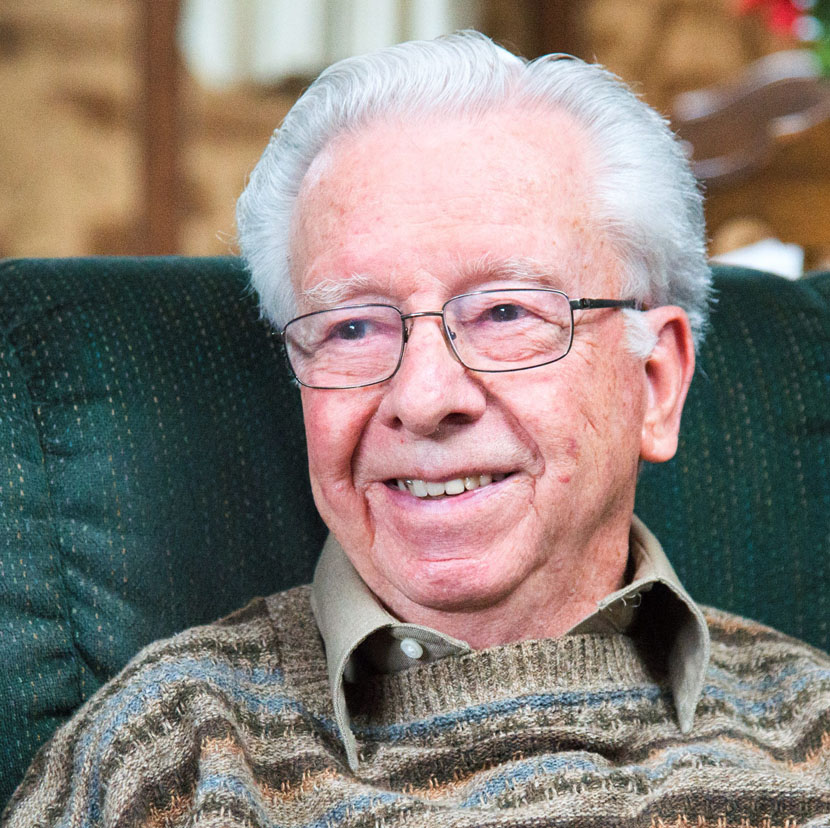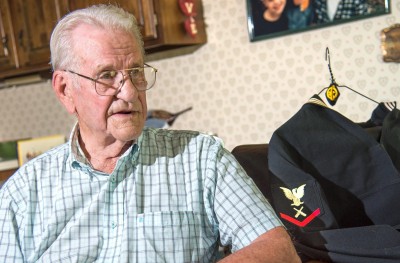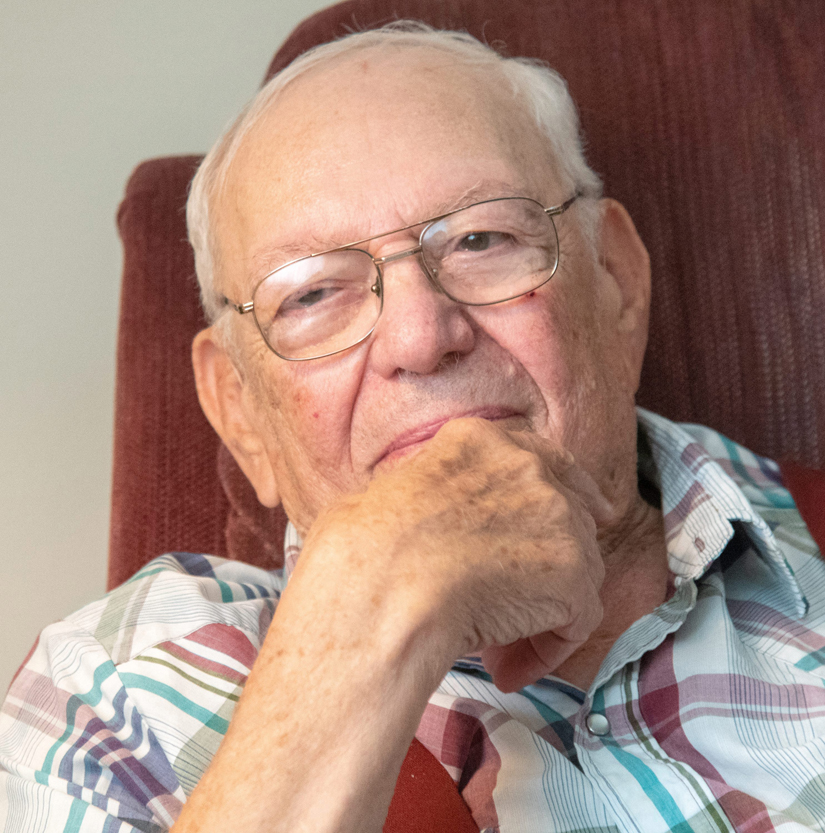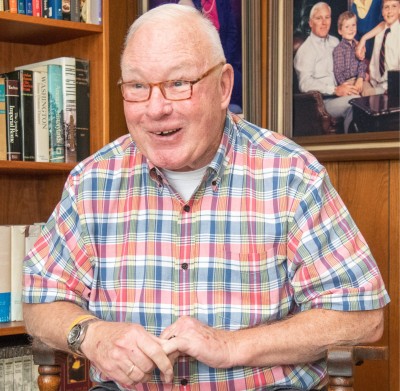Don Muse
By Paul Wood

Photo By Robin Scholz/The News-Gazette
Inside the turret of a 5-inch gun, Don Muse was firing at kamikaze planes off Okinawa on the USS Norman Scott.
“Things hadn’t been that bad before, even at Iwo Jima,” the Urbana man said.
The kamikaze planes were so thick and fast that Muse and his crewmates had a nickname for them, “one-way Charlies.” One crashed into the rear of his ship without hurting any Navy personnel.
Only a few months before, the 17-year-old Champaign High School student had enlisted in the Navy rather than be drafted into the Army.
“I didn’t want to sleep in a foxhole,” he said.
Muse, 88, also served in the Korean War. He and his ship had a special place in WWII, though; they were the first to bombard a city in Hokkaido, making them among the earliest and among the last to navally bombard Japan.
“I’m just a regular guy,” said Muse, but he was often out in the open facing the Japanese.
“The destroyers did a lot of picket duty,” Muse noted.
“We would go out several miles from the fleet and warn of any incoming aircraft, or encounter any surface ships. Being out there alone, you were a choice target for the suicide planes.”
“I prayed a lot.”
Of course, it wasn’t easy being a kamikaze pilot, either. One of the “one-way Charlies” who went after Muse’s fleet was a 16-year-old, the Urbana man said, who bailed out of his plane before it crashed, defying the emperor’s wishes.
“He changed his mind en route. The interrogators got a lot of good information out of that boy, I heard.”
Muse has kept his journal from the Norman Scott (DD690). He’d been rabbit hunting in Neoga and was coming home when the radio told him about Pearl Harbor, but was too young to enlist until May 1944 at Springfield.
After basic training at Great Lakes Naval Base north of Chicago, he qualified for submarine duty “by height, weight and personality.”
But a destroyer, the Norman Scott, needed men, and Muse was assigned to it as a storekeeper and his battle station was as a gunner.
By October 1944, he was on his way to Pearl Harbor. A month later, he was in the Philippines, ready for his first battle, Leyte. Another U.S. ship was sunk 30 miles away from the Norman Scott.
“I was really impressed with the P-38 (planes’) defense,” he said.
As the destroyer approached Mindanao, there was one wave of attacks after another. But by February, the ship was only 200 miles from Tokyo, he says. It was clear, too, that the war in Europe was winding down.
But things were picking up for Muse’s ship.
“Feb. 19 was D-day at Iwo Jima,” he recalled. Two days later, four dive bombers attacked his group.
His birthday was Feb. 23. That’s the same day the flag was raised on Iwo Jima’s Mount Suribachi as his ship cruised around the island.
In May, Okinawa was the target, and that made Muse’s ship a target for the Japanese.
“We probably lost more sailors there than any other time in the war.”
On July 15, the Norman Scott and other ships attacked the seaport city of Muroran, the first surface ships to bomb the Japanese homeland. In less than two months, the war would be over, and the Norman Scott would be in the same bay as the Missouri as the Japanese surrendered.
Muse was recalled for the Korean War but was stationed on a ship in Virginia and the Virgin Islands.
He married Thelma in 1948. Together, they have two daughters, who still live in the area.
He rejoined the Illinois Central and served out his career there, working for 21 years as a Champaign ticket agent, later promoted to management.
A life member of the American Legion and VFW, he remains modest about his own achievements, insisting he wasn’t worth a newspaper story.
Do you know a veteran who could share a story about military service? Contact staff writer Paul Wood at pwood@news-gazette.com.
Read more stories from local veterans:
 Don Pittman
LODA — Unlimited beer and hand grenades are a bad mix. When former Illini football player and legendary wrestling coach …
Don Pittman
LODA — Unlimited beer and hand grenades are a bad mix. When former Illini football player and legendary wrestling coach …
 Howard Ross
URBANA — Howard Ross earned the Purple Heart when Japanese troops zeroed in on his position in the last few months of Wo …
Howard Ross
URBANA — Howard Ross earned the Purple Heart when Japanese troops zeroed in on his position in the last few months of Wo …
 Gene Lamkin
CHAMPAIGN — Lt. Col. Gene Lamkin had a varied career: He was in Okinawa, then Vietnam, at the Pentagon for a while, spen …
Gene Lamkin
CHAMPAIGN — Lt. Col. Gene Lamkin had a varied career: He was in Okinawa, then Vietnam, at the Pentagon for a while, spen …